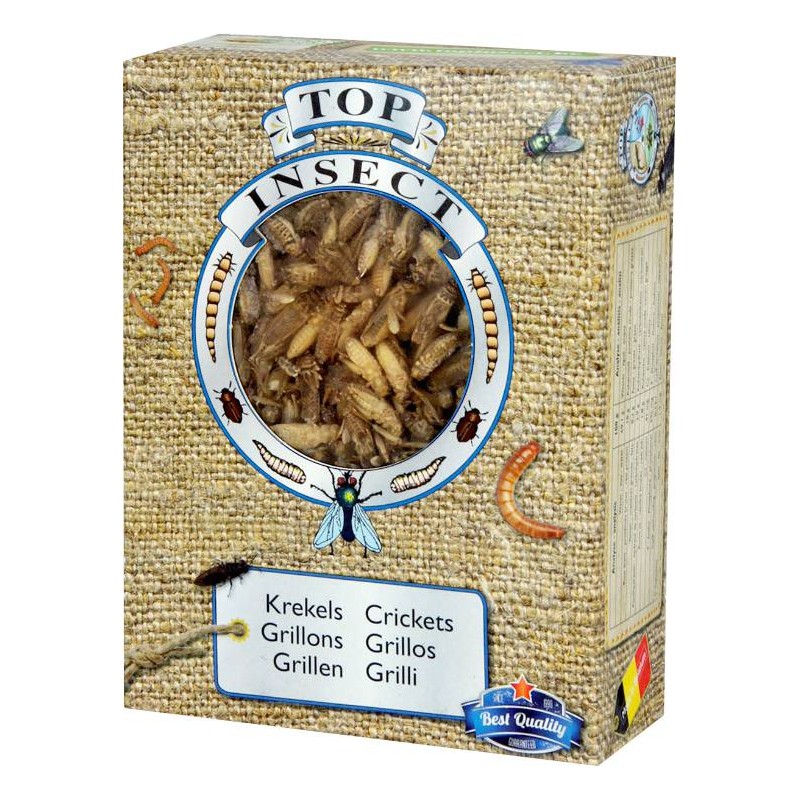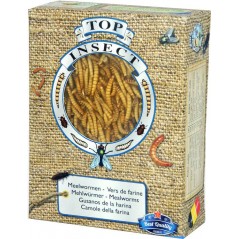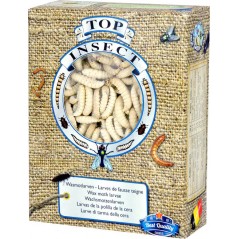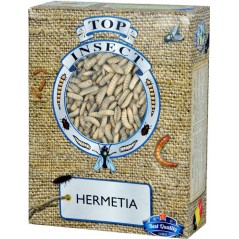


Ornibird.com, le spécialiste pour vos Oiseaux et Animaux !
Ornibird.com, le spécialiste pour vos Oiseaux et Animaux !



(€46.37 kg)
With a high nutritional value, the crickets have the ability, through their elytra hard and horny, to clean the digestive system of birds, causing the excess mucus present in the intestines during the intestinal transit. This aspect is especially beneficial for the birds are exclusively insectivorous.



With a high nutritional value, the crickets have the ability, through their elytra hard and horny, to clean the digestive system of birds, causing the excess mucus present in the intestines during the intestinal transit. This aspect is especially beneficial for the birds are exclusively insectivorous.
In Topinsect are generally used for crickets domestic, crickets replets, crickets steppes and field crickets. In our farms crickets are grown on a mixture of grains, without any addition of synthetic products or other growth promotants.
The result of process of scalding and freezing shock provided by our own facilities, crickets are free of any bacteria are sterile. The residual fraction of bacteria and mold is far below the applicable standards for human food and animal feed. The frequent monitoring supported by analyses to ensure careful monitoring of the entire procedure. This double standard makes the crickets also more digestible.
The crickets are gryllidés belonging to the family of orthopteran insects (grasshoppers and crickets). The female has a oviscapte, which enables him to introduce its eggs even in a middle-resistant (ground or cracked). The male is provided with organs of sound located at the base of the elytra. By rubbing its wings one against the other, he produced his well-known called stridulation.
The crickets, which it has listed approximately 1,100 species, are found especially in warm countries. The indigenous species in the netherlands are the chorus of the woods (Nemobius Sylvestris) and the cricket country (Gryllus Campestris). The natural habitat of the first is at the level of the soil, in clearings, under trees and bushes. He likes to hide in leaf litter or low vegetation. Le grillon country almost totally black prefers prairies and plains of heather, where it digs a burrow to protect themselves. In the netherlands and in Belgium, the population of crickets has dropped significantly. This is why they are on the red List of threatened species. Locally, the crickets of the woods, however, are still present in the forests that stretch in the eastern part of the netherlands.
The life cycle of the cricket differs from that of most other insects.
The development of the fertilized egg goes through several phases. The orthopteran are part of the insect metamorphosis incomplete. Juveniles look like already very strong in the adult insects and are sometimes called nymphs. The egg comes out a "little cricket" wormlike wrapped with a thin film (membrane embryonic). This envelope will crack quickly to let appear the nymph (first step). The larva has a head proportionally too large and completely devoid of any construction wing. For the rest, this little animal closely resembles its parents. At each moult, the wings and the organs develop a bit more (but they will become operational in the adult). The number of phases nymphal differ according to the species. The locust in western Europe has typically been through 4 phases, and the crickets almost 10. After the last molt, becoming adults, the larvae reached maturity. It positions itself so often head down to the bottom and clings with all its legs with a blade of grass or a branchette. The animal that extricates itself from its old cuticle is colorless and soft. It is pumping the "blood" in the folded up wings as they unfold and can begin to dry. This drying process takes a few hours. The staining and curing complete of the insect require a few days.
ANALYSIS
% ON THE TOTAL CRICKETS
%ON THE DRY MATTER CRICKETS
Data sheet
Specific References
No customer reviews for the moment.

With a high nutritional value, the crickets have the ability, through their elytra hard and horny, to clean the digestive system of birds, causing the excess mucus present in the intestines during the intestinal transit. This aspect is especially beneficial for the birds are exclusively insectivorous.

(€46.37 kg)
check_circle
check_circle











